Reclaimed materials transformed into terrazzo by Ajoto and Olivia Aspinall
We take a look at how British writing instruments brand Ajoto uses the waste from its pen manufacturing process to create a minimal pen rest, in collaboration with artisan Olivia Aspinall
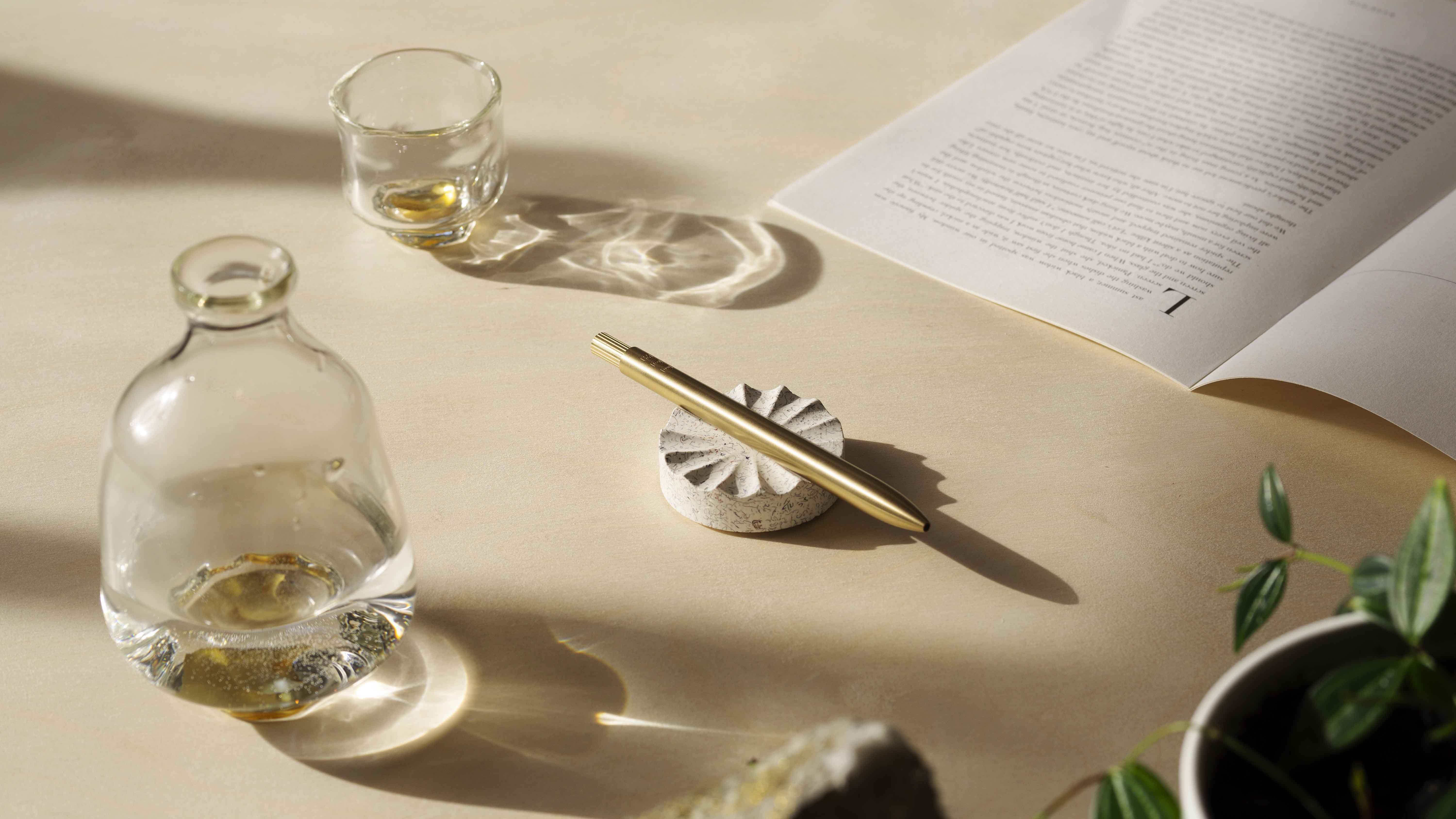
Pen usage (and penmanship) may be rare sights these days, but for the faithful, the writing implements made by Ajoto, a Manchester-based pen company established in 2011, continues to prove that writing is far from dead. Famed for its timeless designs that combine precision manufacturing with the warmth of craft, Ajoto’s pens range from minimalist brass and silver specimens, which naturally patina over time, to limited editions that brandish more ornamentation, or are made in ebonite, a vulcanised rubber material, that are always produced in small batches and designed to last a lifetime.
Off the back of developing its ebonite writing tools (a material that is still the top choice of fine pen makers around the world), Ajoto’s founder Chris Holden sought to recycle previously non-reclaimable waste materials. The result is an elegant duo of pen rests, created in collaboration with Nottingham artisan Olivia Aspinall, who specialises in bespoke surface and terrazzo design.
Ajoto pen rests: recycled materials transformed into products
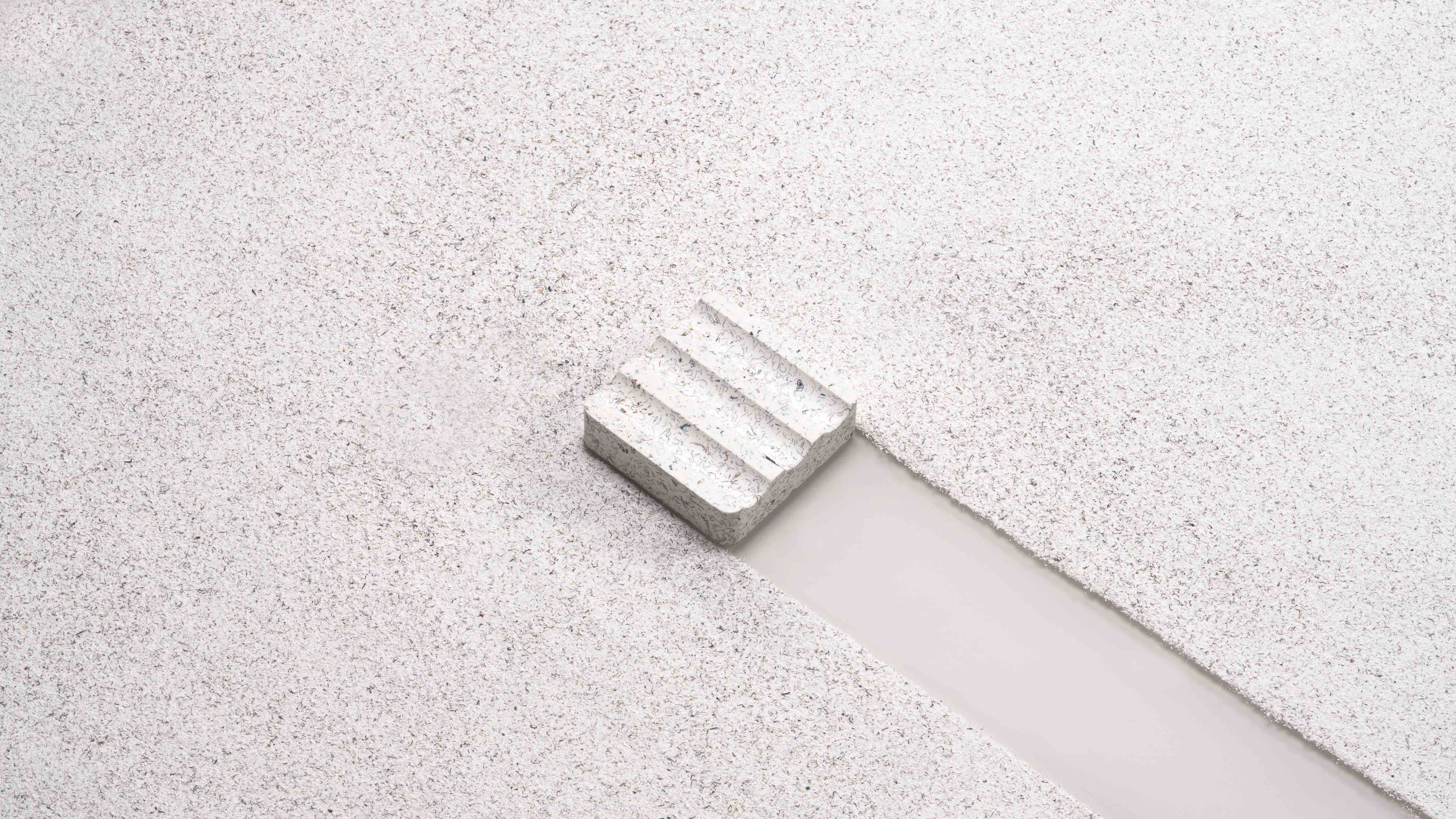
One of the two pen-rests made by Ajoto
‘The Ebonite we use is produced by the combination of two core ingredients: natural rubber latex and sulphur. The mixture of materials passes through multiple production stages before it becomes the ebonite material that we can precision-machine,’ explains Holden. ‘Once the machining is finished we are left with a beautiful pen, but also boxes of curly machining swarf. Unlike metal, which can be easily recycled, the ebonite would need to be processed further to fully remove contaminants, and shipped to Germany. Overall this has a very limited environmental or financial benefit, so this prompted us to set out and find alternative ways to repurpose this material and potentially produce a range of products that would be both practical and beautiful.’
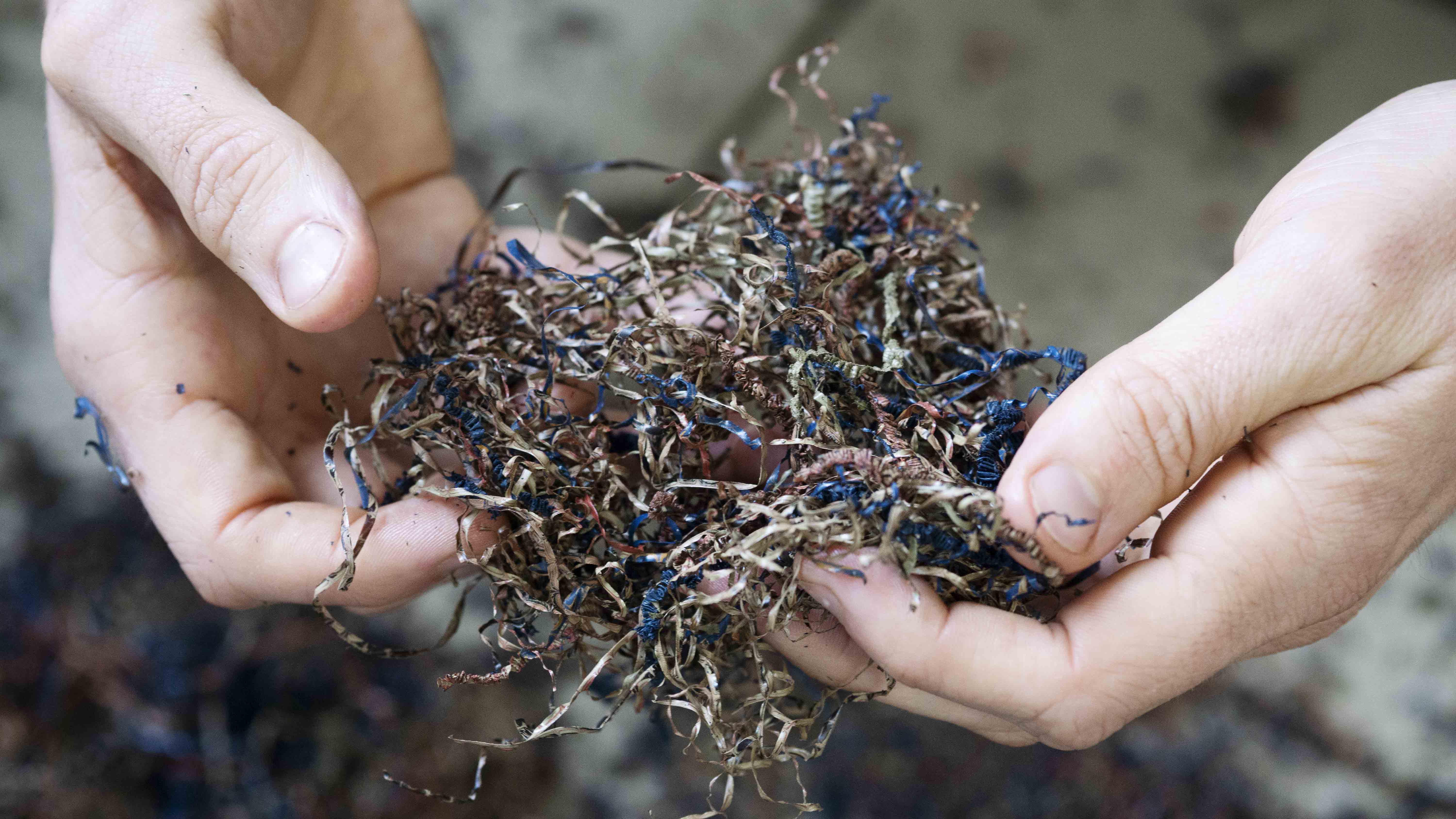
The ‘curly machining swarf’ resulting from the pen manufacturing process
‘The main challenge with the development process has been achieving the correct balance of ebonite to the binder,’ adds Aspinall, who completed a degree in textiles at London’s Central Saint Martins. ‘The challenge has been to make a beautiful surface design that is also strong, whilst not overloading the background material. This unique material is made in a similar way as regular terrazzo, but instead of using terrazzo chips, marble or granite, they re-purpose small ebonite shaving from the Ajoto Ebonite collection and casting with an eco-resin.’
Once the material was made, it was another challenge to cut and sand it. Here, Ajoto turned to Lazerian Studio, a multidisciplinary creative studio and fellow Mancunian. ‘The whole collection is produced in the United Kingdom,’ states Holden. ‘The manufacturing process is the result of modern craft; combining manual and traditional processes with state of the art machinery. We worked alongside Lazerian Studio to carry out the precision machining process. Liam is an experimental artist and designer that fully understands the project and worked with us to precisely carve each rest from our experimental material.’
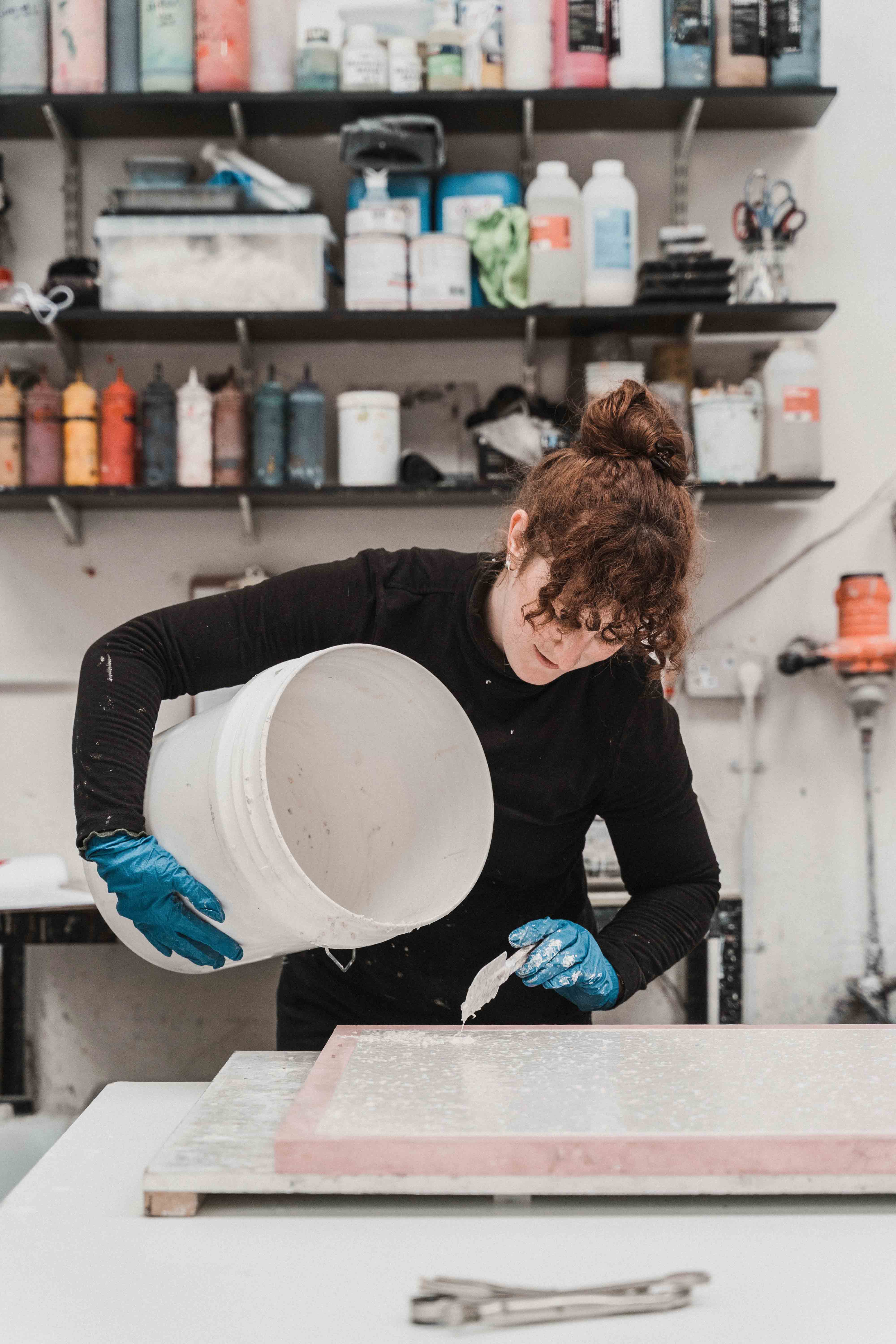
Olivia Aspinall creating the terrazzo-like material in her studio
Once machined, the pen rests are hand-finished and waxed in Nottingham before being given a naturally vegetable-tanned leather base at Ajoto’s studio workshop. Available in two distinctive designs; a crown that allows a pen to be held in multiple positions, and a grooved triple, which can accommodate three pens, the pen holders provide an elegant resting place before its user makes their next mark.
INFORMATION
Wallpaper* Newsletter
Receive our daily digest of inspiration, escapism and design stories from around the world direct to your inbox.
Pei-Ru Keh is a former US Editor at Wallpaper*. Born and raised in Singapore, she has been a New Yorker since 2013. Pei-Ru held various titles at Wallpaper* between 2007 and 2023. She reports on design, tech, art, architecture, fashion, beauty and lifestyle happenings in the United States, both in print and digitally. Pei-Ru took a key role in championing diversity and representation within Wallpaper's content pillars, actively seeking out stories that reflect a wide range of perspectives. She lives in Brooklyn with her husband and two children, and is currently learning how to drive.
-
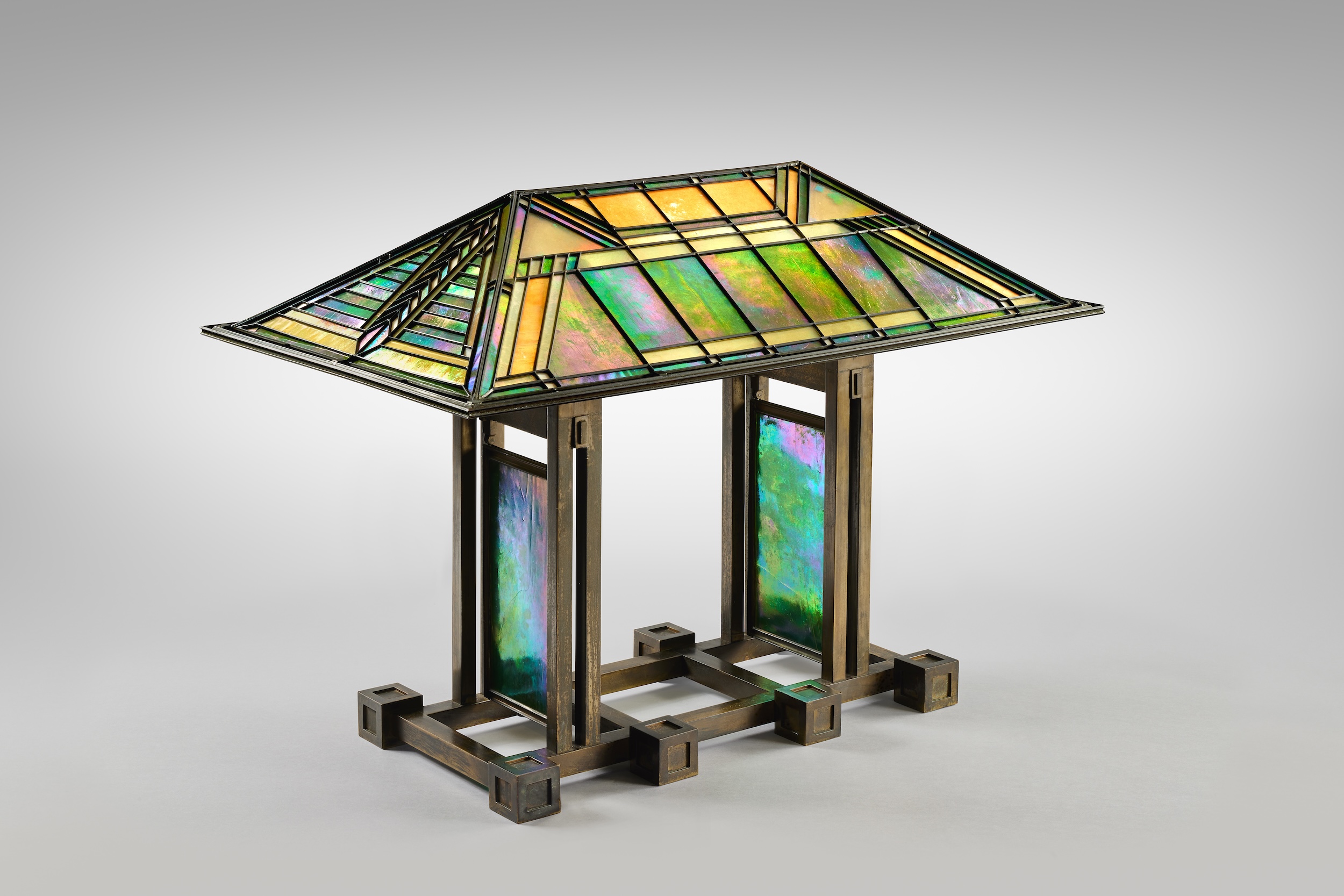 Sotheby’s is auctioning a rare Frank Lloyd Wright lamp – and it could fetch $5 million
Sotheby’s is auctioning a rare Frank Lloyd Wright lamp – and it could fetch $5 millionThe architect's ‘Double-Pedestal’ lamp, which was designed for the Dana House in 1903, is hitting the auction block 13 May at Sotheby's.
By Anna Solomon
-
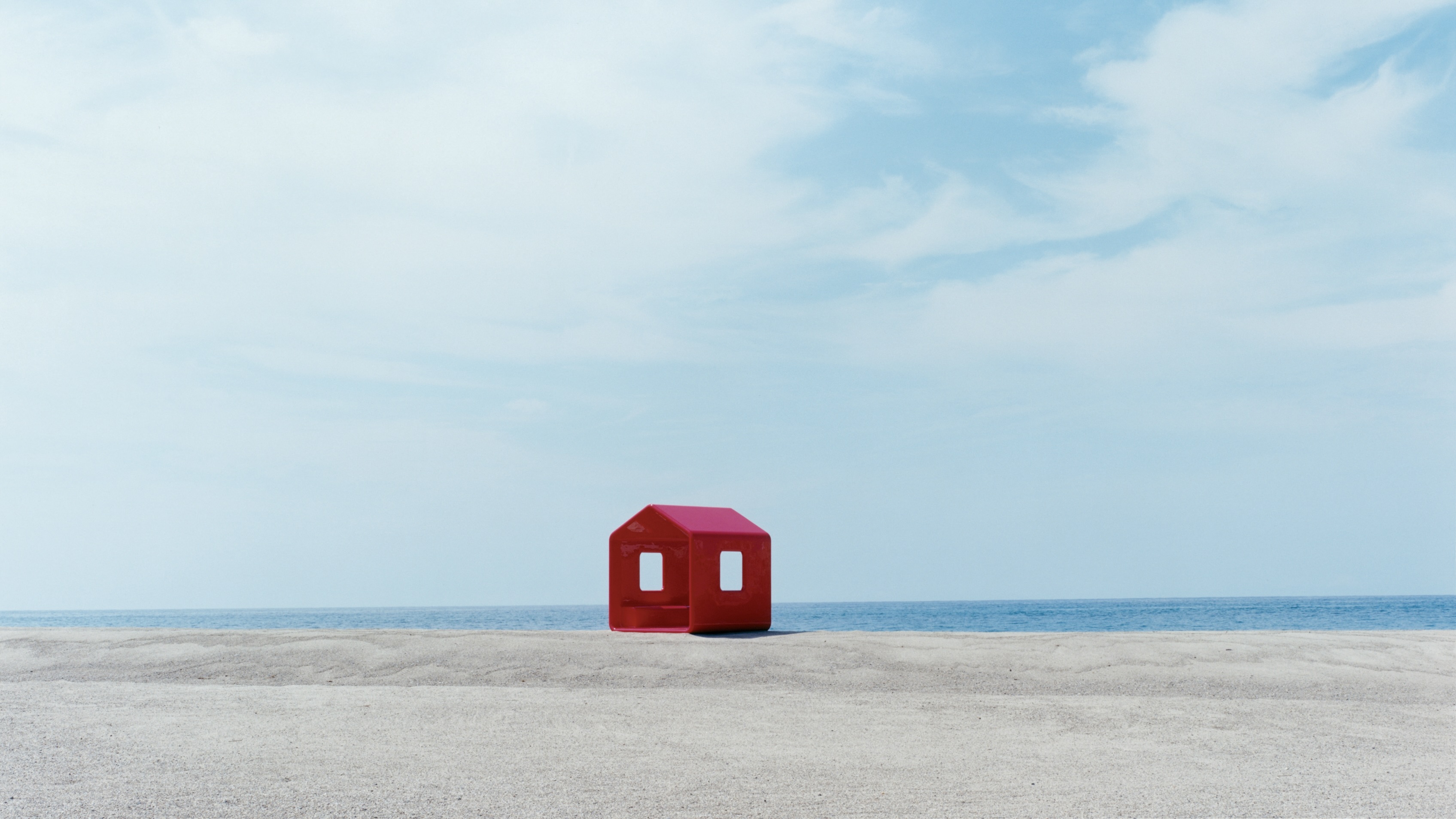 Naoto Fukasawa sparks children’s imaginations with play sculptures
Naoto Fukasawa sparks children’s imaginations with play sculpturesThe Japanese designer creates an intuitive series of bold play sculptures, designed to spark children’s desire to play without thinking
By Danielle Demetriou
-
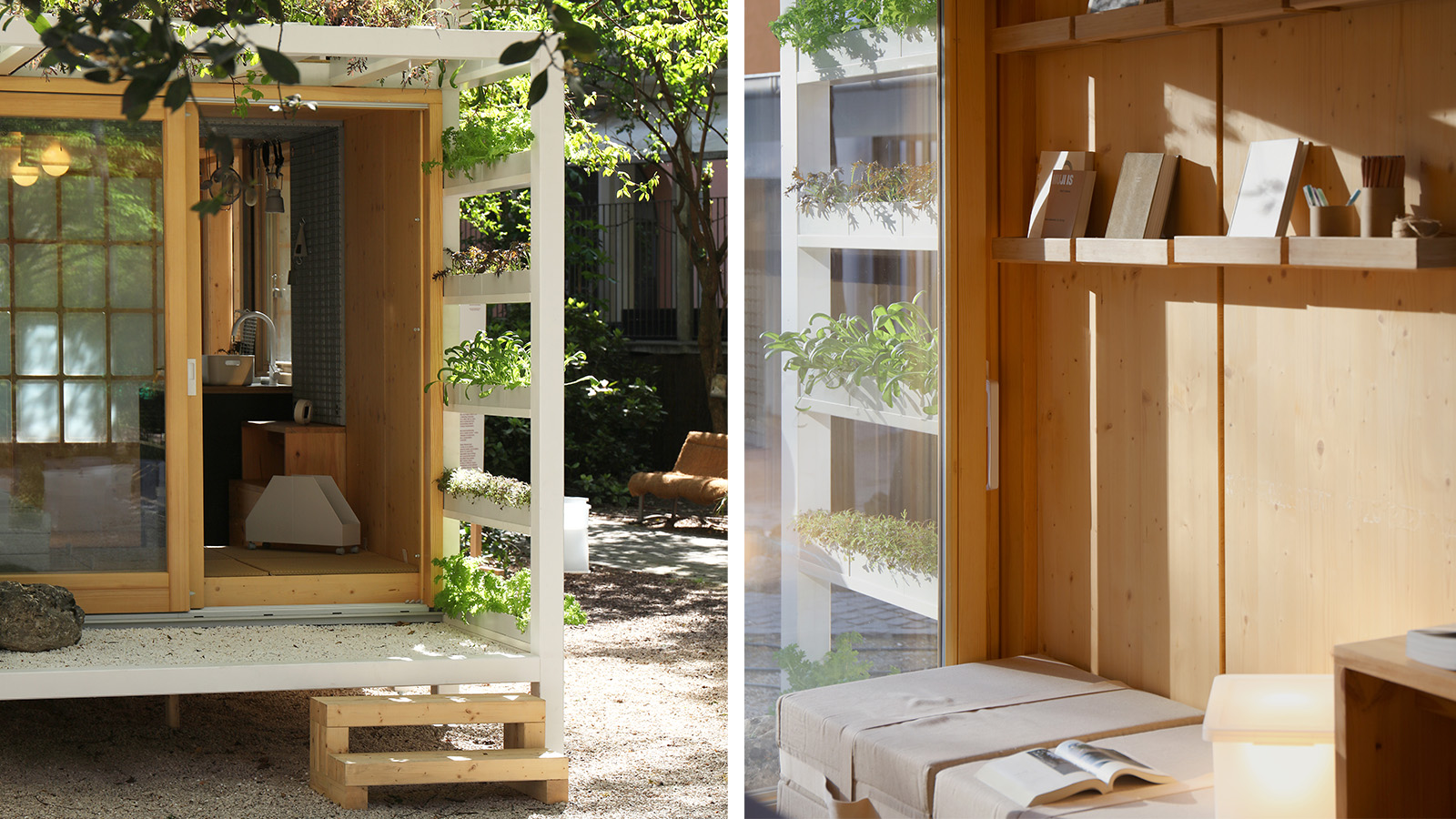 Japan in Milan! See the highlights of Japanese design at Milan Design Week 2025
Japan in Milan! See the highlights of Japanese design at Milan Design Week 2025At Milan Design Week 2025 Japanese craftsmanship was a front runner with an array of projects in the spotlight. Here are some of our highlights
By Danielle Demetriou
-
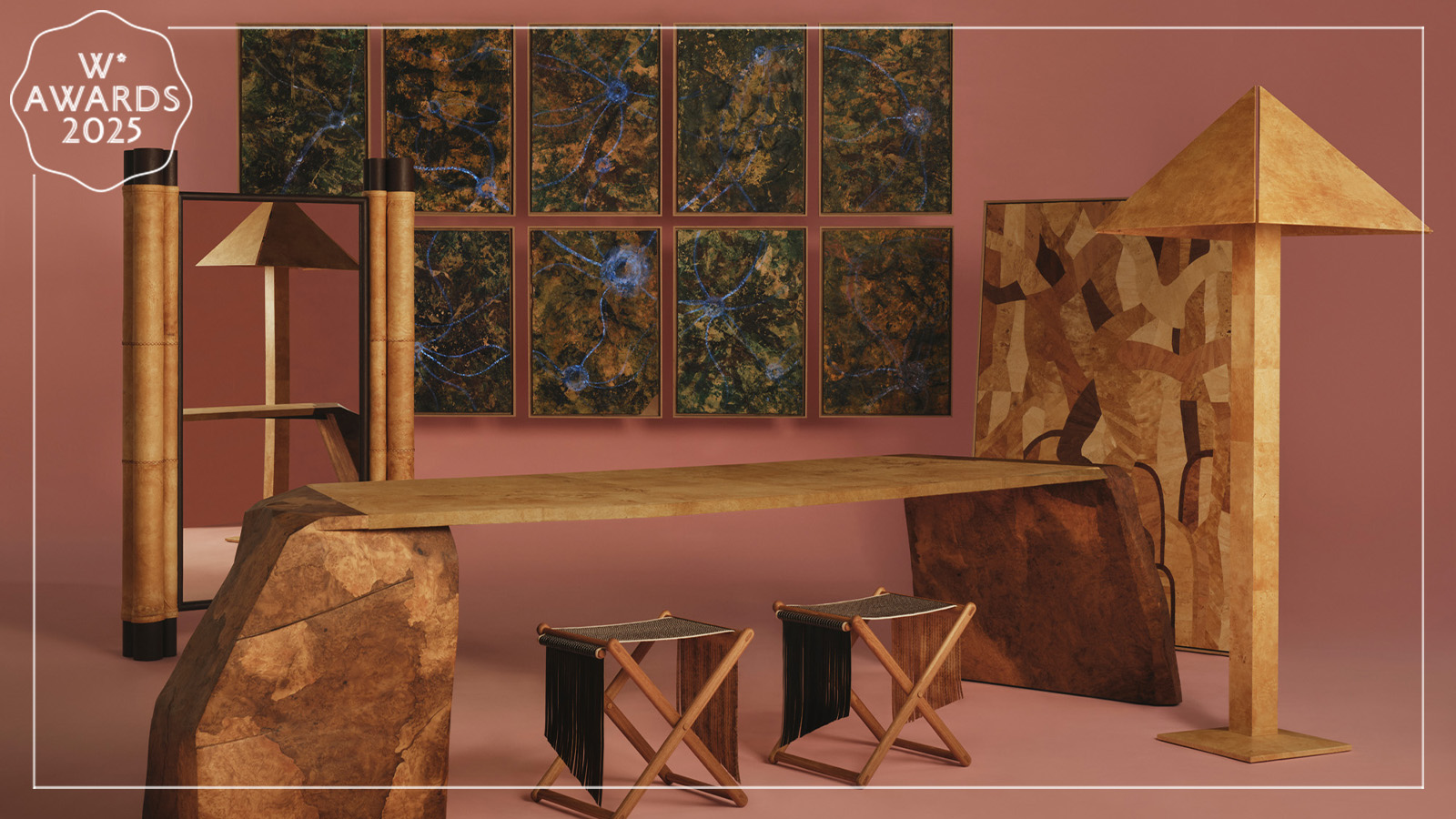 We feel a growing passion for MycoWorks, the company inspiring beauty with fungal-based biomaterial
We feel a growing passion for MycoWorks, the company inspiring beauty with fungal-based biomaterialReishi is a Wallpaper* Design Award winner, a new self-growing, biodegradable material by MycoWorks presented in a series of exquisite expressions of earthy and ethereal furniture, lighting and artworks
By Hugo Macdonald
-
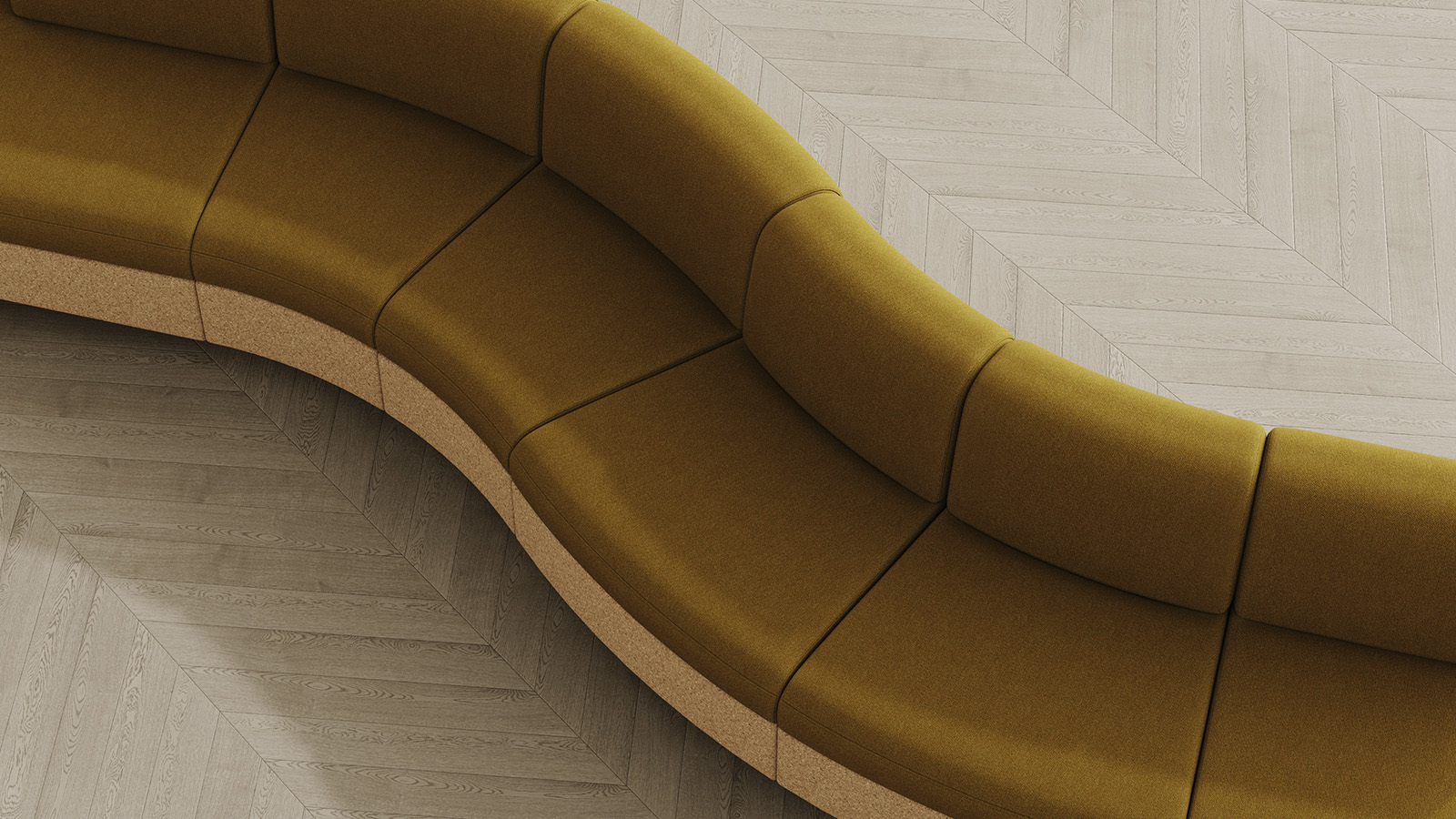 This new all-natural sofa is made with cork leftover from the production of wine stoppers
This new all-natural sofa is made with cork leftover from the production of wine stoppersIsomi’s ‘Tejo’ sofa is constructed entirely of natural materials and features a modular, experimental design
By Tianna Williams
-
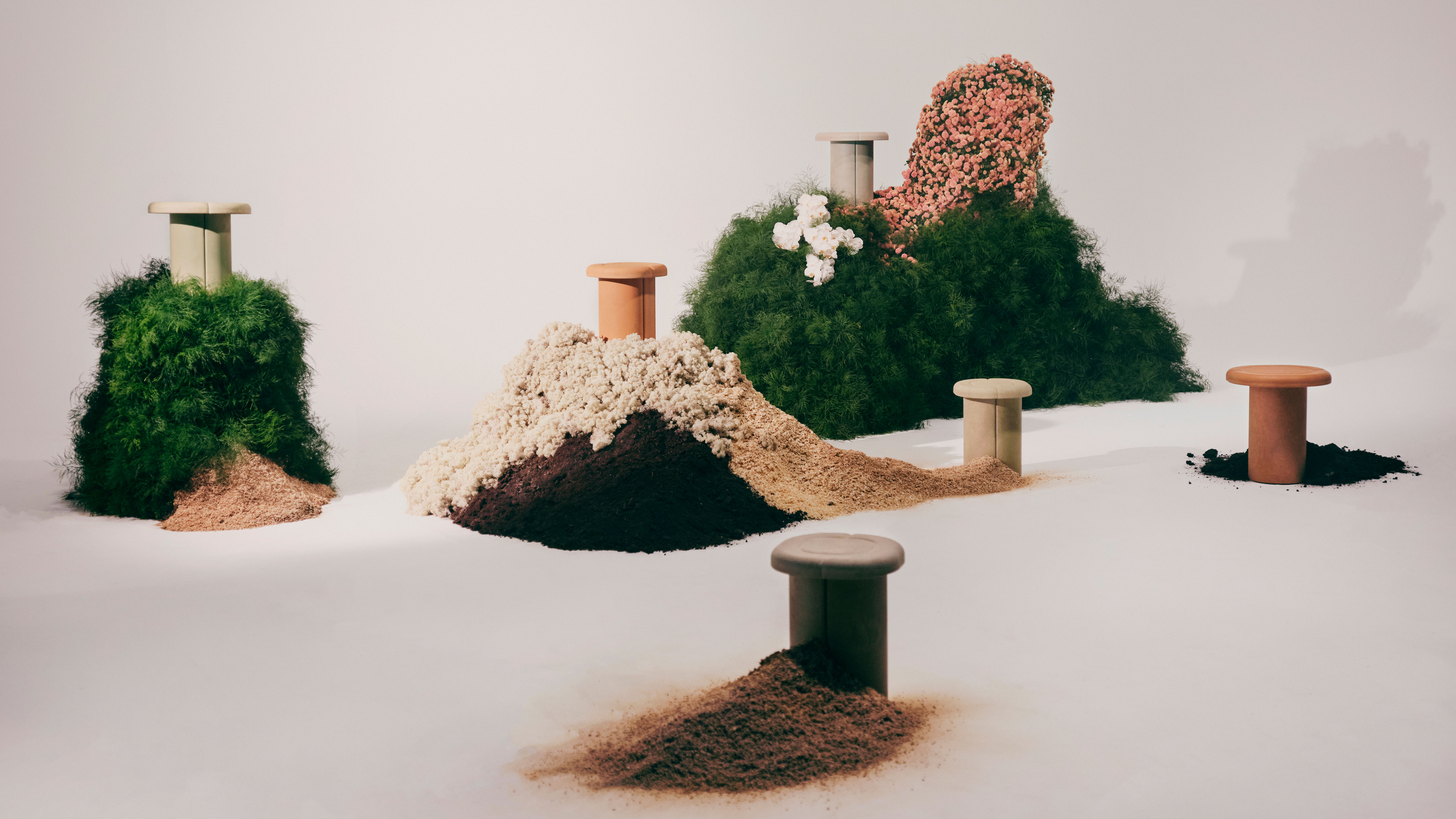 New Mater tables by Patricia Urquiola are made from recycled coffee beans
New Mater tables by Patricia Urquiola are made from recycled coffee beansThe Alder collection of tables by Patricia Urquiola for Mater make their debut at Milan Design Week 2024, and are made of a specially-developed material made from recycled coffee beans
By Rosa Bertoli
-
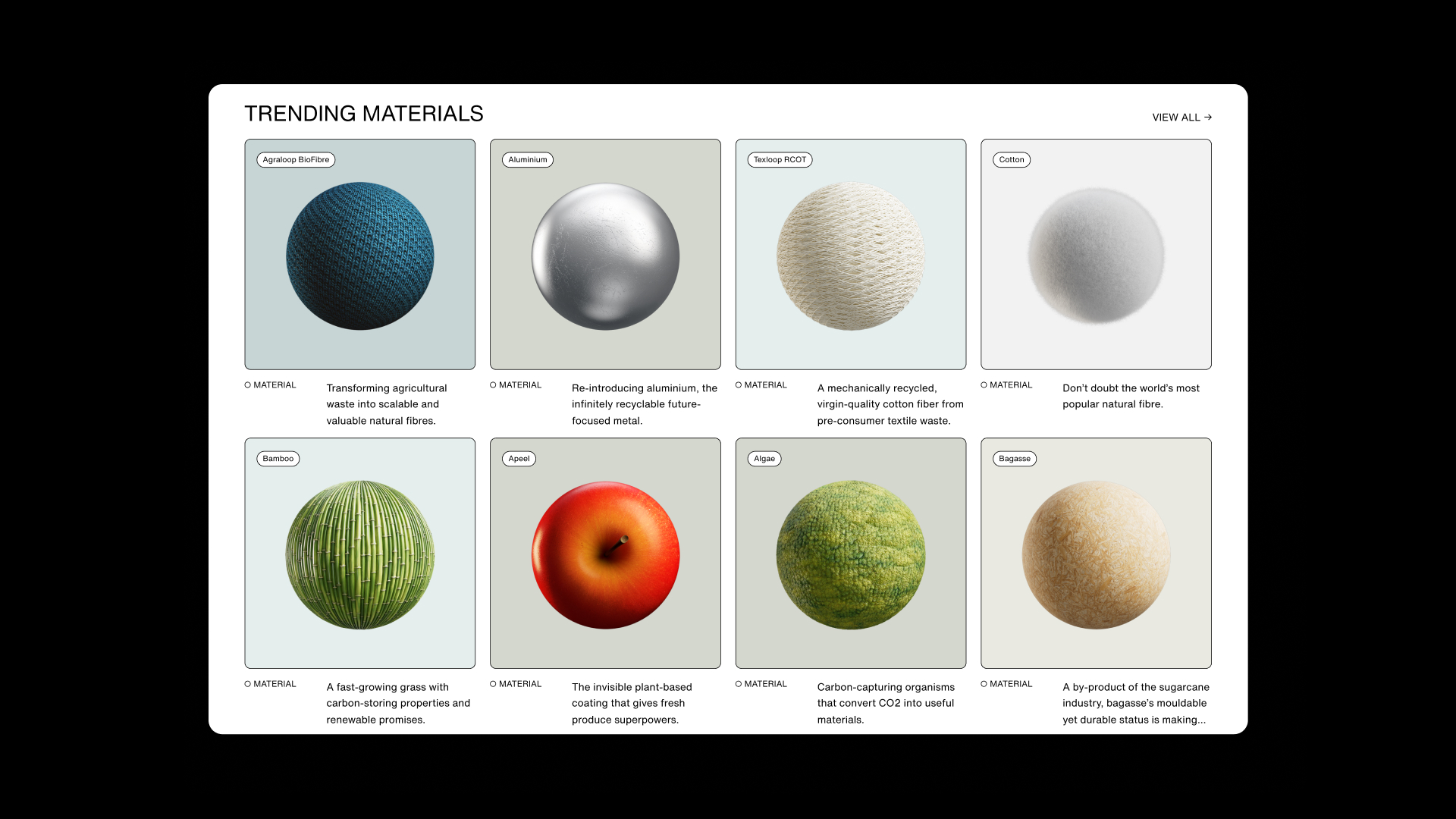 Discover Plastic Free: the new online destination for alternative materials
Discover Plastic Free: the new online destination for alternative materialsPlastic Free is a new portal for creatives looking to explore alternatives to plastic in their work
By Rosa Bertoli
-
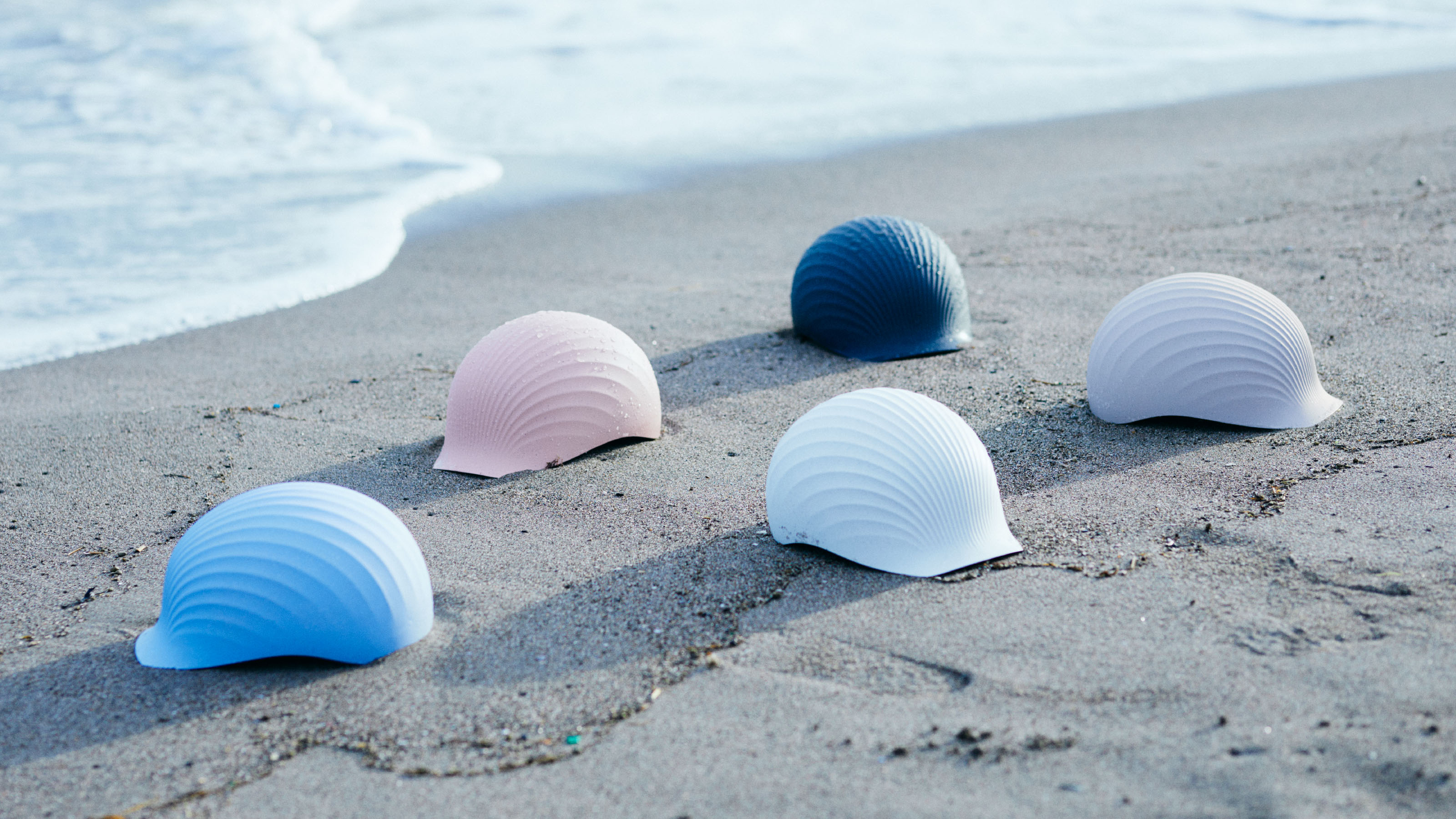 Shellmet: the helmet made from waste scallop shells
Shellmet: the helmet made from waste scallop shellsShellmet is a new helmet design by TBWA\Hakuhodo’s creative team and Osaka-based Koushi Chemical Industry Co, made using Hokkaido’s discarded scallop shells
By Jens H Jensen
-
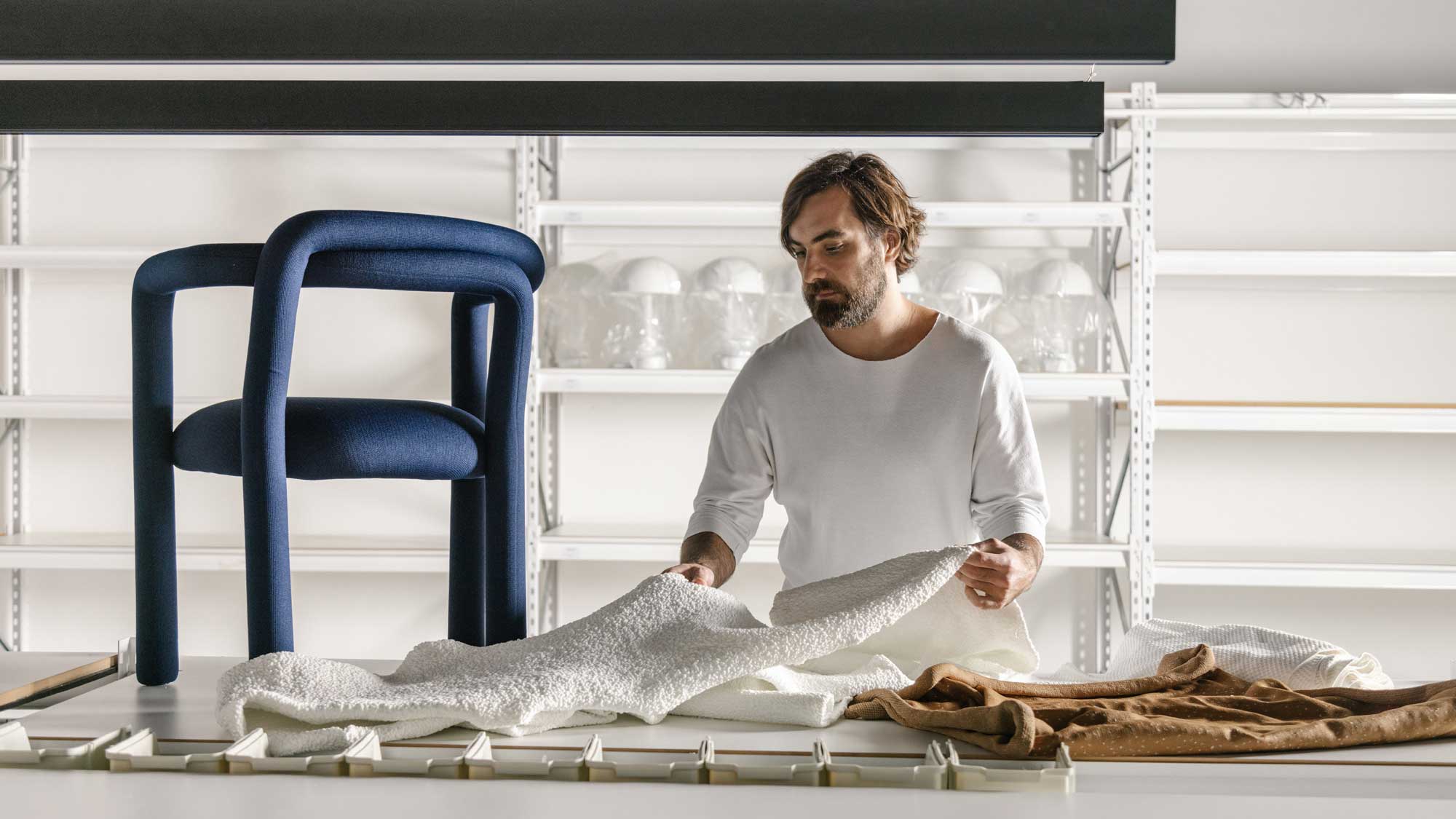 Wentz presents innovative furniture incorporating ocean plastic waste
Wentz presents innovative furniture incorporating ocean plastic wasteThe ‘Mar’ collection by Guilherme Wentz is informed by the sea and features computerised 3D-weaving techniques to transform ocean-borne plastic
By Scott Mitchem
-
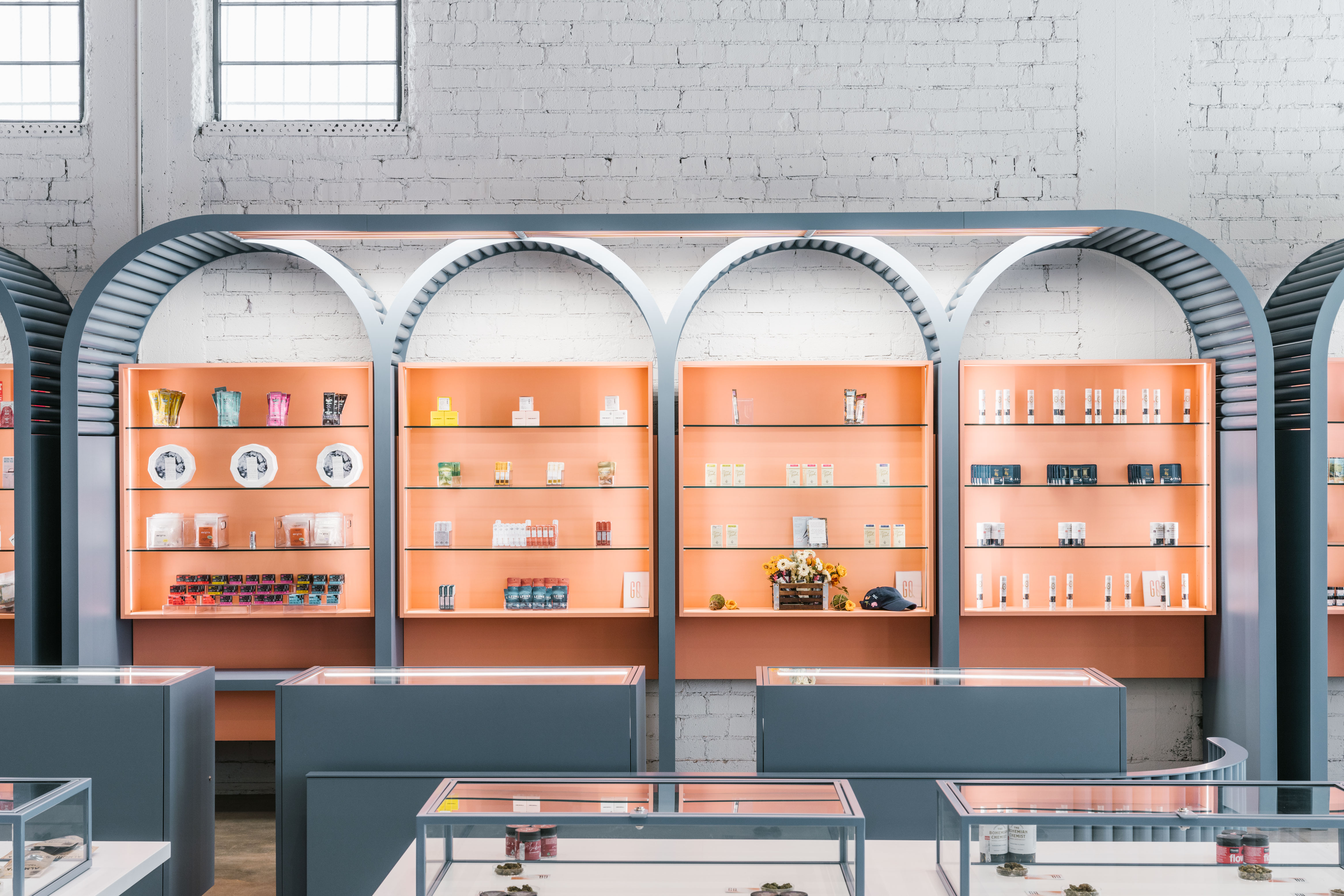 Discover the brands redefining the marijuana experience
Discover the brands redefining the marijuana experienceContemporary brands have made efforts to redesign the experience of marijuana: these the names to look out for, from community-centered dispensaries to elegant objects
By Rosa Bertoli
-
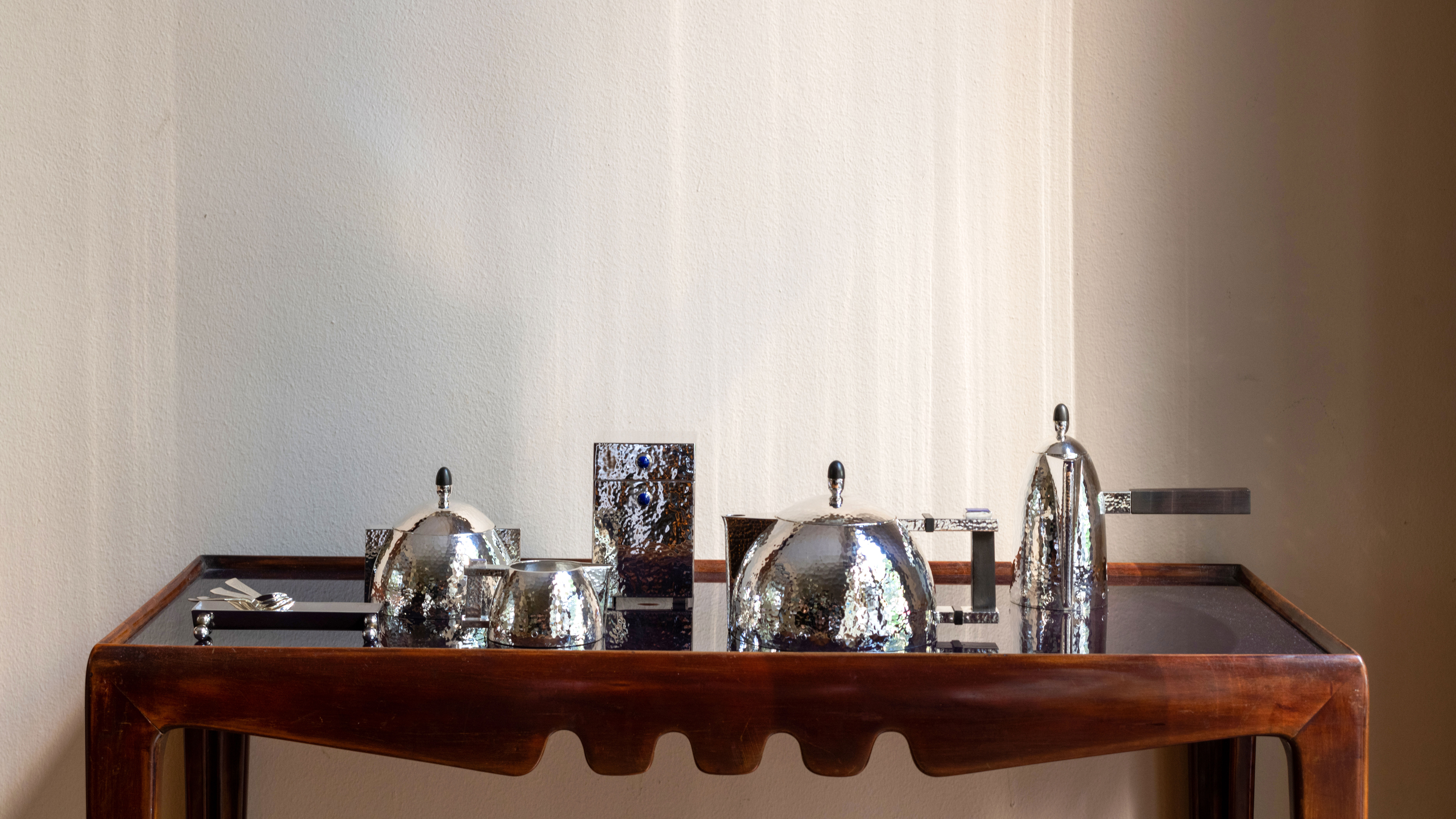 Abask, a new curated shopping website, highlights handmade design
Abask, a new curated shopping website, highlights handmade designAbask presents a curated online design shopping experience, thanks to a team of antique enthusiasts, craftspeople and designers
By Martha Elliott